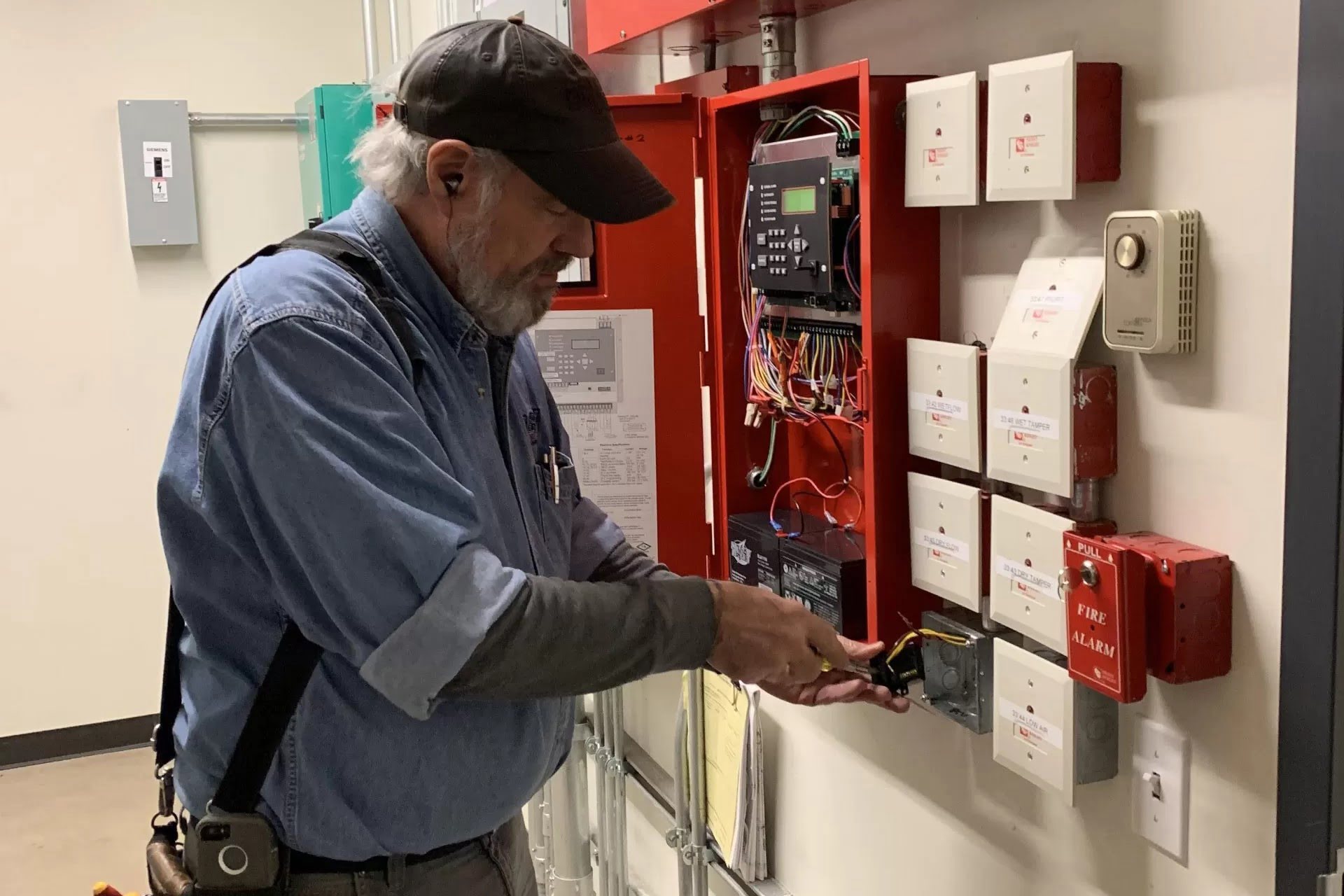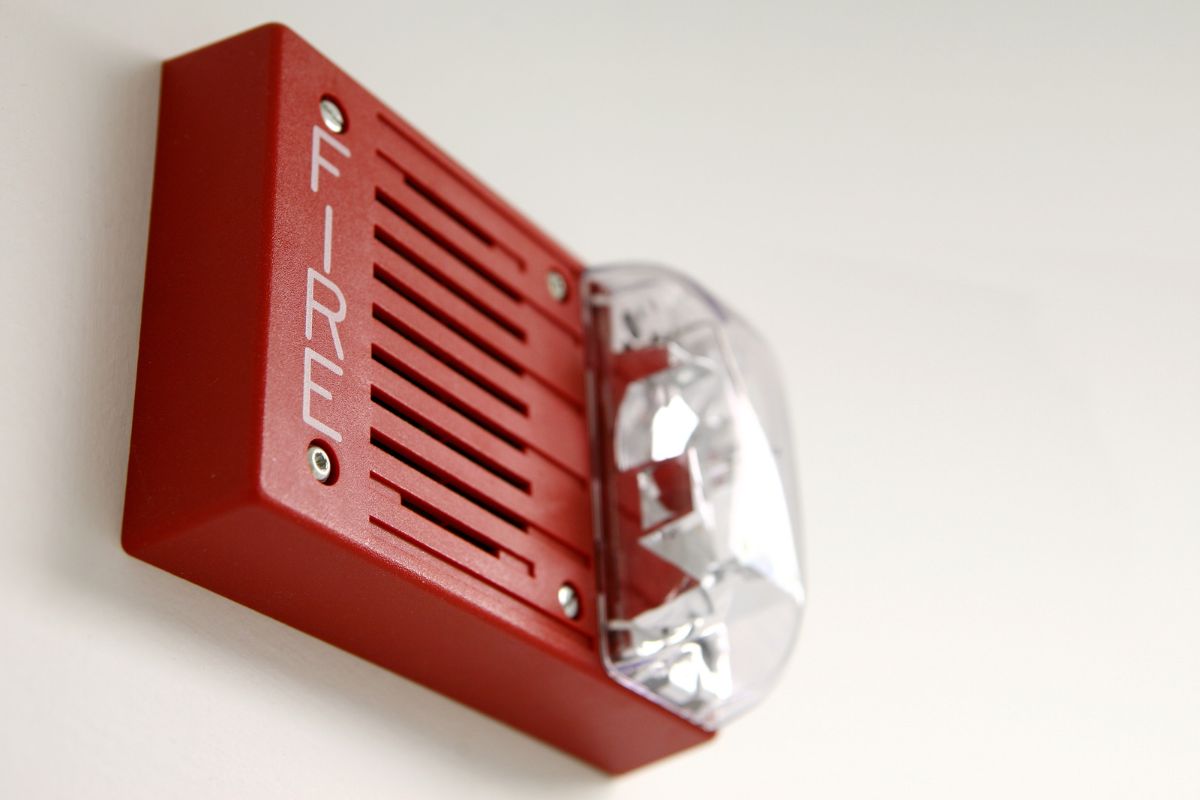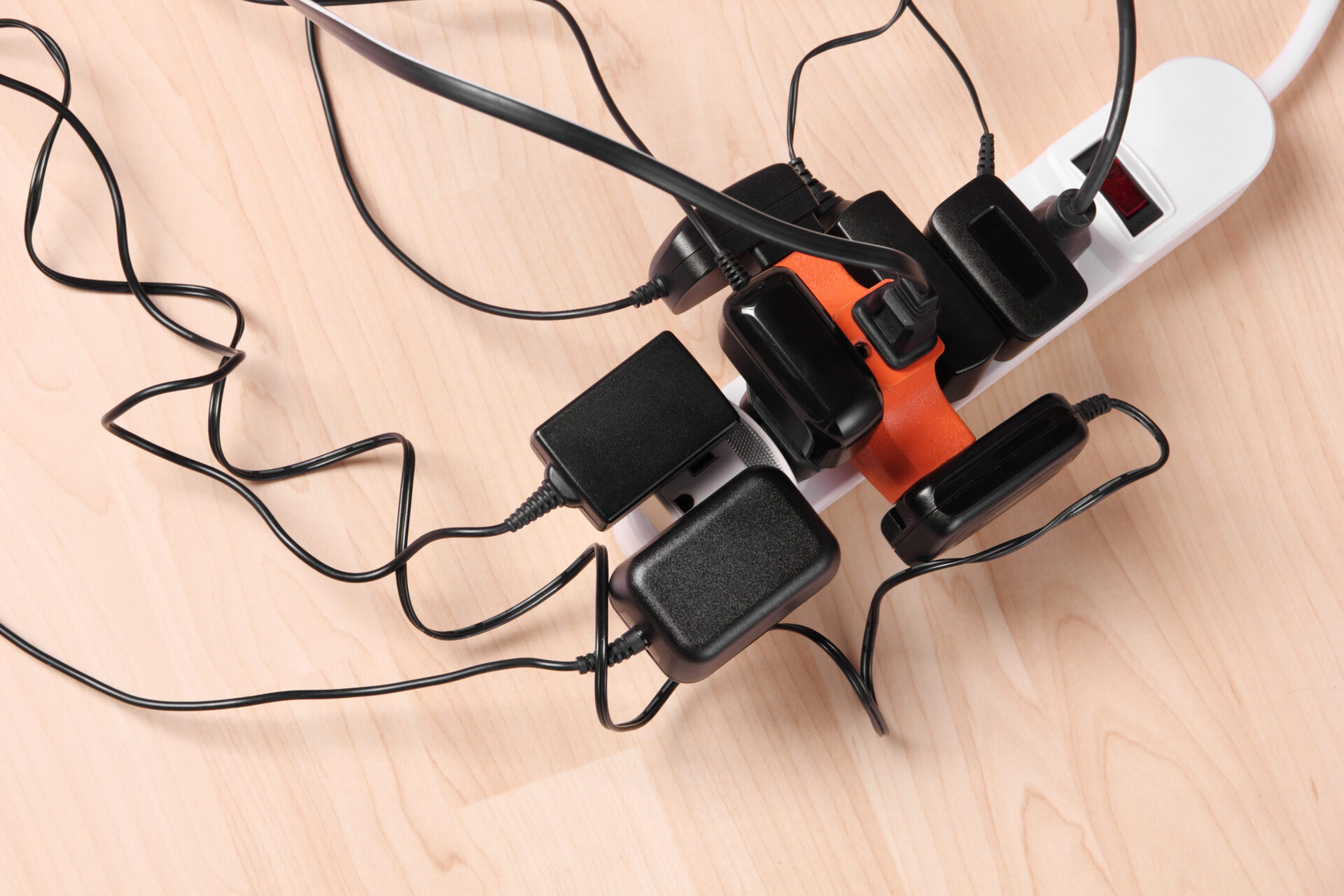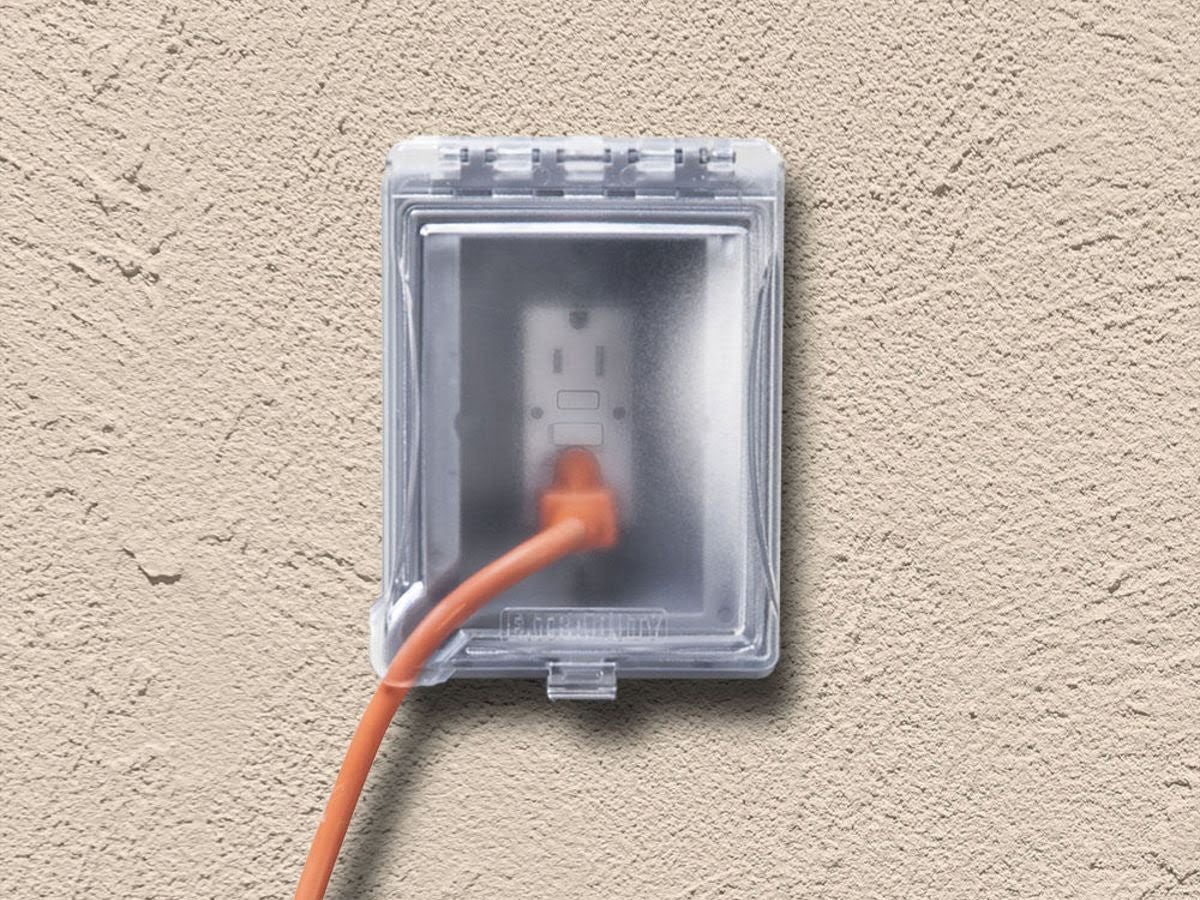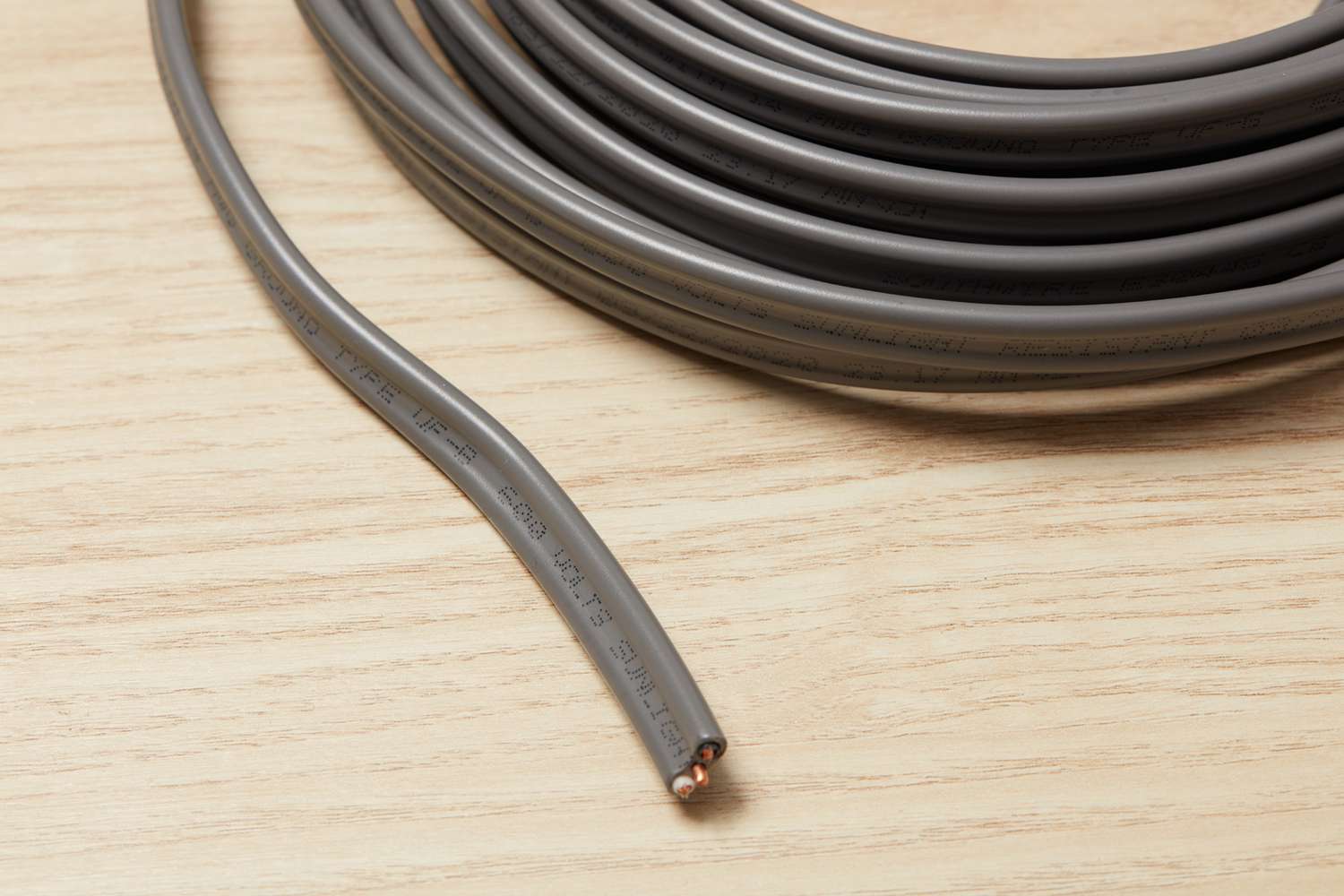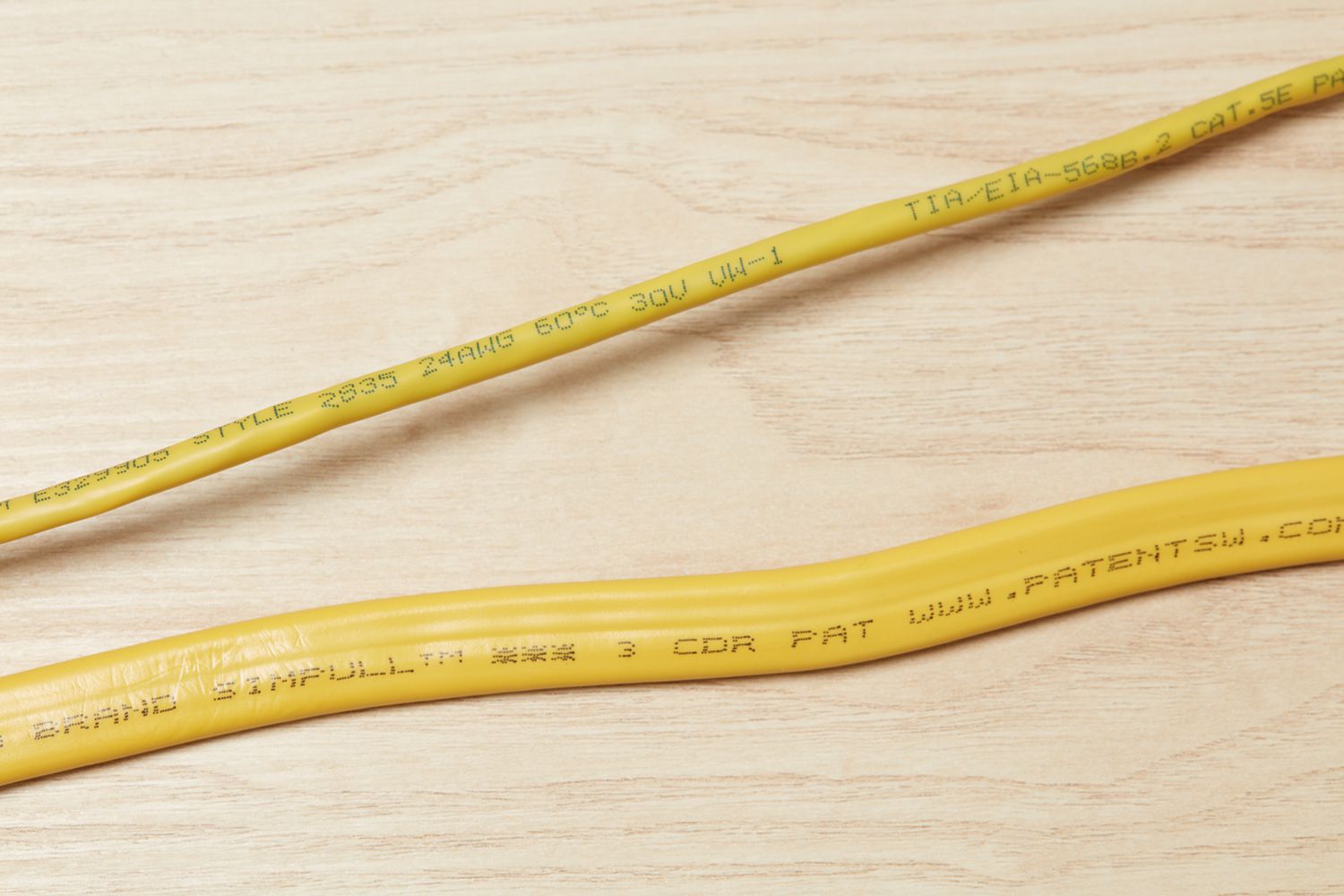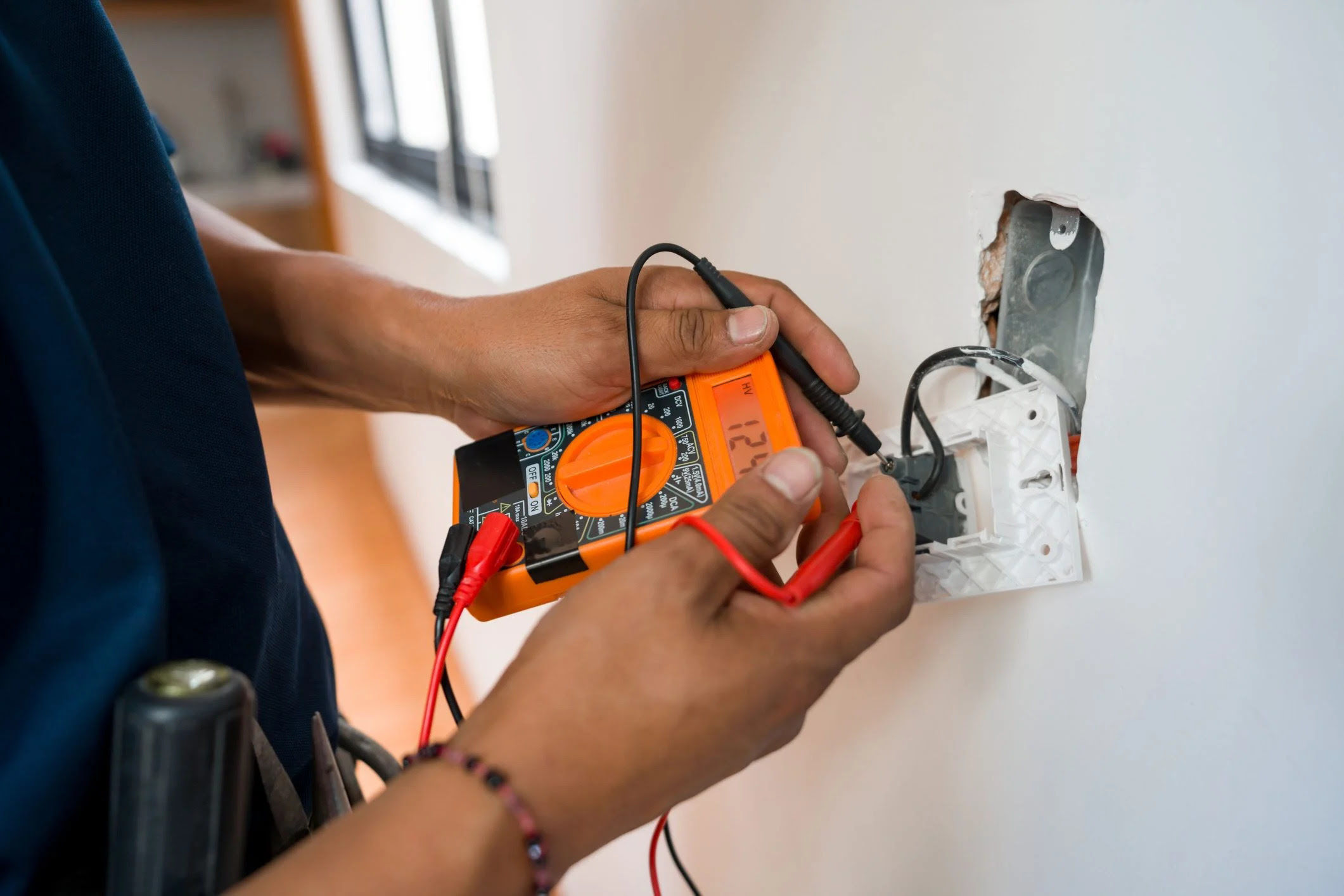Home>Home Security and Surveillance>Which Electrical Code Specifies Wiring Methods And Cables For Fire Alarm Systems?
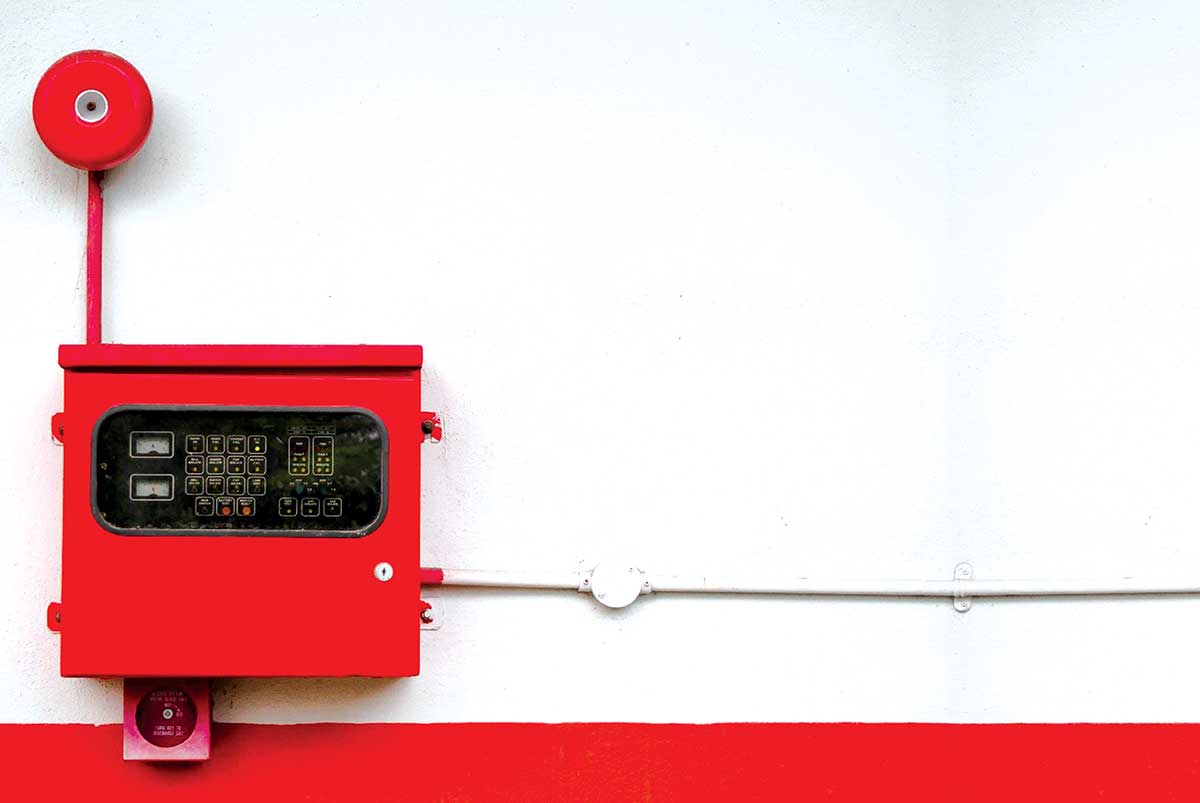

Home Security and Surveillance
Which Electrical Code Specifies Wiring Methods And Cables For Fire Alarm Systems?
Modified: August 28, 2024
Find out which electrical code specifies the wiring methods and cables for fire alarm systems. Ensure your home security and surveillance systems are up to code with this essential information.
(Many of the links in this article redirect to a specific reviewed product. Your purchase of these products through affiliate links helps to generate commission for Storables.com, at no extra cost. Learn more)
Introduction
Welcome to the world of home security and surveillance! In today’s fast-paced world, ensuring the safety of our homes and loved ones has become paramount. Fortunately, advancements in technology have made it easier than ever to protect our homes with state-of-the-art home security and surveillance systems.
One crucial component of any reliable home security system is the wiring methods and cables used for fire alarm systems. These systems serve as an early warning system, detecting the presence of smoke or fire and alerting occupants to evacuate the premises promptly. For a fire alarm system to function effectively, it must be installed and wired correctly according to specific codes and regulations.
In this article, we will explore the importance of wiring methods and cables for fire alarm systems and understand the specific requirements set forth by the National Electrical Code (NEC).
Having a solid understanding of the NEC requirements is vital for homeowners, electricians, and security system installers alike. Following these guidelines ensures that fire alarm systems are installed correctly, reducing the risk of false alarms or failure to detect and alert occupants during an emergency.
So, whether you’re a homeowner looking to enhance the safety of your home or a professional in the home security industry, let’s delve into the world of wiring methods and cables for fire alarm systems!
Key Takeaways:
- Proper wiring methods and cables are crucial for fire alarm systems to work effectively and reliably. They ensure signals are transmitted accurately, comply with safety standards, and resist fire.
- The National Electrical Code (NEC) provides guidelines for fire alarm system wiring. Following these guidelines and using the right cables ensures safety and peace of mind for homeowners and building occupants.
Overview of Fire Alarm Systems
Fire alarm systems are designed to detect the presence of fire, smoke, or other potentially dangerous conditions within a building. They serve as a crucial safety measure by providing early warning to occupants and alerting them to evacuate the premises promptly. Fire alarm systems consist of various components that work together to ensure the safety of the building and its occupants.
The primary components of a fire alarm system include:
- Smoke detectors: These devices detect the presence of smoke particles in the air and trigger the alarm when smoke is detected.
- Heat detectors: Heat detectors are designed to sense an increase in temperature and activate the alarm when a certain threshold is reached.
- Fire alarm control panel (FACP): The FACP is the command center of the fire alarm system. It receives signals from detectors and other devices and activates the alarm when necessary. The panel also monitors the system for faults or malfunctions.
- Notification devices: These devices include horn/strobes, sirens, or bells that produce audible and visual signals to alert occupants of the presence of a fire or emergency situation.
- Manual pull stations: Located at various points throughout the building, manual pull stations allow occupants to manually activate the fire alarm system in case of emergency.
Fire alarm systems can be further divided into conventional systems and addressable systems. Conventional systems use zone-based wiring, where detectors in each zone are connected to a specific circuit. Addressable systems, on the other hand, use digital communication to individually address each detector or device on the system, providing more precise diagnostic information and control.
With an understanding of the basic components and types of fire alarm systems, let’s now explore the importance of wiring methods and cables for these systems to ensure their proper installation and functionality.
Importance of Wiring Methods and Cables
When it comes to fire alarm systems, proper wiring methods and cables play a crucial role in ensuring the system functions effectively and reliably. The wiring methods and cables used for fire alarm systems are specifically designed and regulated to meet the safety standards required for emergency situations. Here are some key reasons why wiring methods and cables are important:
1. Reliable Signal Transmission
The wiring methods and cables used in fire alarm systems are carefully selected to provide reliable signal transmission. The integrity of the wiring is essential for detecting and transmitting signals from the detectors to the control panel. Any compromise in the wiring can result in false alarms or the failure to detect a real fire, putting lives and property at risk.
2. Compatibility with the System
Using the right wiring methods and cables ensures compatibility with the fire alarm system being installed. Different systems may have varying requirements in terms of voltage, current capacity, and wire gauge. It is essential to follow the manufacturer’s guidelines and adhere to the appropriate wiring standards to ensure seamless integration and optimal performance of the system.
3. Fire Resistance and Safety
Fire alarm systems are a critical safety measure to protect against the threat of fire. Therefore, it is imperative that the wiring methods and cables used are fire-resistant. Fire-rated cables, such as plenum-rated or riser-rated cables, are specifically designed to withstand high temperatures and prevent the spread of fire, providing an extra layer of safety and protection in case of an emergency.
4. Compliance with Codes and Regulations
Proper wiring methods and cables for fire alarm systems must meet the codes and regulations set forth by the National Electrical Code (NEC) and other local fire safety authorities. Compliance with these codes is essential to ensure the installation and operation of the system align with safety standards. Failure to comply with the codes can result in penalties, legal ramifications, and the system being deemed non-compliant.
5. Maintenance and Troubleshooting
Using standardized wiring methods and cables simplifies maintenance and troubleshooting processes. Having well-labeled and properly installed cables makes it easier for technicians to identify and isolate any issues that may arise. This facilitates efficient repairs or replacements, minimizing downtime and ensuring the system remains in optimal working condition.
In summary, the importance of wiring methods and cables for fire alarm systems cannot be overstated. Choosing the right wiring materials, following proper installation techniques, and adhering to safety standards are crucial for the reliable operation and effectiveness of the system in emergency situations. By prioritizing these aspects, we can ensure the safety and well-being of occupants and protect valuable property from the threat of fire.
National Electrical Code (NEC) and Fire Alarm Systems
The National Electrical Code (NEC) is a set of standards and guidelines established by the National Fire Protection Association (NFPA) for the safe installation and operation of electrical systems, including fire alarm systems. The NEC serves as a comprehensive reference for electrical contractors, engineers, and inspectors to ensure that electrical installations meet minimum safety requirements.
When it comes to fire alarm systems, the NEC provides specific regulations and guidelines to ensure their proper design, installation, and maintenance. These regulations cover various aspects of fire alarm systems, including wiring methods, cables, power sources, grounding, and equipment requirements.
One of the key sections in the NEC that pertains to fire alarm systems is Article 760: Fire Alarm Systems. This article outlines the requirements for both residential and commercial fire alarm systems, including system design, wiring methods, power supplies, and supervision.
Under Article 760, the NEC specifies key requirements for wiring methods and cables used in fire alarm systems. These requirements are in place to ensure the safety, reliability, and proper functioning of the fire alarm system. Some of the important provisions include:
Read more: How To Splice Electrical Wire
1. Use of Approved Wiring Methods and Cables
The NEC requires the use of approved wiring methods and cables for fire alarm systems. These wiring methods and cables must meet specific performance standards, such as flame retardance and insulation properties, to ensure they can withstand the rigors of an emergency situation and prevent fire spread.
2. Separation from Other Circuits
The NEC mandates that wiring for fire alarm systems must be separate from other electrical circuits to minimize the risk of accidental power interruption or interference. This separation ensures that the fire alarm system remains functional even if other circuits are compromised.
3. Voltage and Current Requirements
The NEC establishes guidelines for voltage and current requirements for fire alarm systems. These requirements ensure that the system operates within safe limits and can effectively transmit signals between detectors, control panels, and notification devices.
4. Grounding and Bonding
The NEC specifies grounding and bonding requirements for fire alarm systems to ensure proper electrical grounding, which reduces the risk of electrical shock and helps protect the system from electrical surges and faults.
Adhering to the NEC requirements is crucial to ensure the proper installation and operation of fire alarm systems. Compliance with these regulations helps minimize the risk of false alarms, faulty detection, or system failure during an emergency, ultimately ensuring occupant safety and property protection.
It is important to note that while the NEC sets the minimum requirements, local jurisdictions may have additional or more stringent requirements for fire alarm systems. It is essential to consult with local authorities and obtain the necessary permits and approvals before installing or modifying a fire alarm system.
Read more: How To Lengthen An Electrical Wire
Electrical Code Requirements for Fire Alarm Systems
Fire alarm systems are critical for the safety and protection of buildings and occupants, and their proper installation and operation are governed by specific electrical code requirements. These requirements ensure that fire alarm systems are designed, installed, and maintained to meet minimum safety standards. Let’s explore some of the important electrical code requirements for fire alarm systems:
1. Wiring and Cable Types
The electrical code specifies the types of wiring and cables that are suitable for fire alarm systems. Commonly used wiring methods include non-metallic sheathed cable (NM), plenum-rated cable, and conduit systems. These wiring methods are chosen based on factors such as fire resistance, voltage rating, and environmental conditions to ensure proper functioning and safety.
2. Maximum Circuit Lengths
The electrical code sets maximum circuit length requirements for fire alarm wiring. These limitations help prevent signal degradation over long distances and ensure reliable communication between detectors, control panels, and other system components. By adhering to the maximum circuit length requirements, the effectiveness of the fire alarm system is maintained.
3. Power Source and Backup
Fire alarm systems must have a reliable power source to ensure continuous operation. The electrical code specifies requirements for primary power sources and the provision of backup power, usually in the form of batteries or an uninterruptible power supply (UPS). Backup power ensures that the fire alarm system remains functional during power outages, allowing for uninterrupted protection.
4. Grounding and Bonding
Proper grounding and bonding of fire alarm systems are crucial for safety and effective operation. The electrical code provides requirements for grounding electrodes, bonding conductors, and equipment grounding, which help mitigate electrical hazards, prevent equipment damage, and maintain system integrity.
5. Supervision and Maintenance
Fire alarm systems should be supervised and maintained regularly to ensure proper operation and compliance with safety standards. The electrical code specifies requirements for system testing, inspection, and documentation. It also outlines the responsibilities of building owners, operators, and qualified personnel in maintaining the fire alarm system’s functionality.
It is important to note that the specific electrical code requirements for fire alarm systems may vary based on the jurisdiction and local regulations. While the National Electrical Code (NEC) serves as a guideline, local amendments and additional requirements may apply. It is crucial to consult the applicable electrical code in your area and work with certified professionals to ensure compliance with all relevant requirements.
By following the electrical code requirements for fire alarm systems, building owners, electrical contractors, and fire safety professionals can ensure that these systems are designed, installed, and maintained to the highest safety standards, providing reliable protection against the threat of fire.
Wiring Methods for Fire Alarm Systems
Proper wiring methods are crucial for the effective and reliable operation of fire alarm systems. The wiring methods used in these systems ensure the secure and efficient transmission of signals between detectors, control panels, and notification devices. Let’s explore some of the commonly used wiring methods for fire alarm systems:
1. Conduit Systems
Conduit systems involve the use of metal or non-metallic conduits to house and protect the wiring. Conduits provide excellent mechanical protection and help prevent damage from external factors such as moisture, impact, or chemical exposure. Metal conduits offer enhanced protection against electromagnetic interference (EMI) and are often preferred for their durability and fire resistance.
Read more: What Is SOOW Electrical Wire
2. Non-Metallic Sheathed Cable (NM)
Non-metallic sheathed cable (NM) is commonly used for fire alarm wiring. This type of cable consists of insulated conductors encased in a protective outer sheath. NM cable is flexible and easy to install, making it ideal for both residential and commercial applications. However, it is important to ensure that the NM cable used for fire alarm systems meets the necessary fire resistance standards.
3. Plenum-Rated Cable
Plenum-rated cable is specifically designed for use in plenum spaces, which are areas of a building used for air circulation. Plenum spaces often present a higher fire risk due to the presence of air ducts and can contribute to the rapid spread of smoke and fire. Plenum-rated cable is made with flame-resistant materials and is required by code in plenum spaces to minimize the risk of fire propagation.
4. Addressable Systems Wiring
Addressable fire alarm systems use digital communication to individually address each device on the system, allowing for precise control and diagnostic capabilities. The wiring methods for addressable systems can vary, depending on the manufacturer’s recommendations. Some systems may utilize a combination of conduits, cables, or network cabling to ensure reliable communication between devices.
5. Separation of Wiring
The electrical code requires that fire alarm system wiring be separated from other electrical wiring to minimize the risk of accidental power interruption or interference. This separation ensures that the fire alarm system remains operational even if other circuits are compromised. It also simplifies troubleshooting and maintenance tasks by providing clear separation between different wiring systems.
When selecting a wiring method for a fire alarm system, it is important to consider factors such as the environment, fire rating requirements, electrical codes, and system compatibility. It is always recommended to consult with a qualified electrical contractor or fire alarm system professional to ensure the appropriate wiring method is selected and installed in accordance with the applicable codes and regulations.
By following the recommended wiring methods, fire alarm systems can operate reliably, providing early detection and rapid response in the event of a fire or emergency, ultimately safeguarding lives and property.
Read more: What Is A White Electrical Wire
Cables for Fire Alarm Systems
Choosing the right cables is crucial for ensuring the proper functioning and reliability of fire alarm systems. Cables used in fire alarm systems must meet specific safety and performance standards to withstand the demands of emergency situations. Let’s explore some of the commonly used cables for fire alarm systems:
1. Plenum-Rated Cable
Plenum-rated cables are specifically designed for use in plenum spaces, which are areas used for air circulation, such as the space above suspended ceilings or below raised floors. Plenum spaces pose a higher fire risk, as they allow for the rapid spread of smoke and fire. Plenum-rated cables are constructed with fire-retardant materials that meet the requirements for reduced flame spread and low smoke generation, ensuring the safety of occupants and minimizing the risk of fire propagation.
2. Riser-Rated Cable
Riser-rated cables are used in vertical applications, such as between floors or in vertical shafts, where cables pass through different levels of a building. These cables are designed to resist flame propagation vertically, taking into account the potential spread of fire along a vertical path. Riser-rated cables provide an extra level of fire protection compared to general-purpose cables, ensuring the integrity of the fire alarm system during an emergency.
3. Shielded Cable
Shielded cables are utilized in fire alarm systems where electromagnetic interference (EMI) may be present. EMI can disrupt the proper operation of the system by causing false alarms or interfering with signal transmission. Shielded cables consist of one or more conductors surrounded by a metallic shield that helps to minimize the impact of EMI and maintain signal integrity within the fire alarm system.
Read more: How To Cap An Electrical Wire
4. Solid- versus Stranded-Core Cable
Fire alarm systems commonly use both solid-core and stranded-core cable types. Solid-core cables consist of a single wire conductor and are typically used for long runs or in areas with minimal movement. On the other hand, stranded-core cables are composed of multiple smaller wire strands, providing flexibility and durability. Stranded-core cables are often used in more dynamic areas where movement or vibration may occur, such as in conduit installations or in areas exposed to frequent activity.
5. Color-Coding for Identification
Cables used in fire alarm systems often feature color-coding to simplify identification and installation. Different colors are assigned to specific cable types to help distinguish between power cables, control cables, signal cables, and others. This color-coding system ensures proper connection and reduces the risk of errors during installation or maintenance of the fire alarm system.
When selecting cables for a fire alarm system, it is important to consider factors such as fire and smoke resistance, voltage rating, environmental conditions, and compliance with local electrical code requirements. It is recommended to consult with fire alarm system professionals or certified electricians to ensure that the chosen cables meet the necessary safety standards and are appropriate for the specific requirements of the fire alarm system.
By using the right cables for fire alarm systems, building owners, electrical contractors, and fire safety professionals can ensure the reliability and effectiveness of the system, providing early detection and prompt response during fire emergencies, ultimately protecting lives and property.
Conclusion
Fire alarm systems are essential for the safety and protection of buildings and occupants. Proper wiring methods and cables play a critical role in ensuring the effective and reliable operation of these systems. By adhering to the specific electrical code requirements and utilizing the appropriate wiring methods and cables, we can ensure that fire alarm systems are installed correctly, minimizing false alarms and maximizing the system’s ability to detect and respond to fire emergencies.
Choosing the right wiring methods, such as conduit systems, non-metallic sheathed cables (NM), or plenum-rated cables, ensures reliable signal transmission and compliance with safety standards. Adhering to separation requirements for fire alarm system wiring helps reduce the risk of interference or accidental power interruption, maintaining the system’s integrity and functionality.
Cables used in fire alarm systems, such as plenum-rated cables, riser-rated cables, shielded cables, or solid- versus stranded-core cables, must meet specific safety and performance standards. These cables are designed to withstand the demands of emergency situations, minimize fire propagation, and ensure the reliable transmission of signals between system components.
The National Electrical Code (NEC) provides comprehensive guidelines and regulations for the installation and operation of fire alarm systems. By following the NEC requirements, as well as any local amendments or additional codes, we can ensure compliance and maintain the highest level of safety for building occupants.
In conclusion, investing in proper wiring methods and cables for fire alarm systems is critical to safeguarding lives and property. By prioritizing safety, choosing the right materials, and following the applicable electrical codes, we can ensure the reliable operation of fire alarm systems, allowing early detection, prompt response, and ultimately providing peace of mind for homeowners and building occupants.
Frequently Asked Questions about Which Electrical Code Specifies Wiring Methods And Cables For Fire Alarm Systems?
Was this page helpful?
At Storables.com, we guarantee accurate and reliable information. Our content, validated by Expert Board Contributors, is crafted following stringent Editorial Policies. We're committed to providing you with well-researched, expert-backed insights for all your informational needs.
